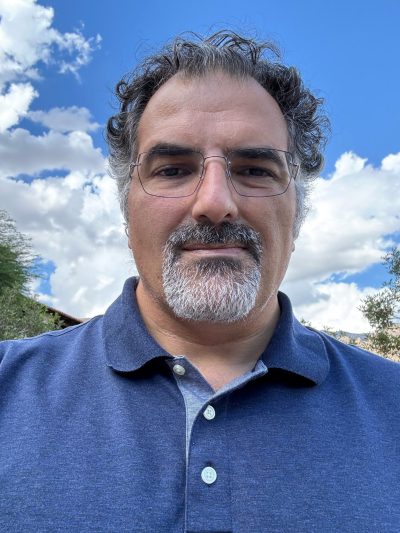
By: Asher Jones
Afshin Beheshti will lead biomedical research at Pitt as director of the McGowan Institute for Regenerative Medicine’s new Center for Space Biomedicine, one pillar of the Pitt Space initiative that launched this month.
The mission of the center, which also includes space engineering and space science, is to develop new technologies to make spaceflight safer for humans and bring those advances back down to Earth to address terrestrial health care challenges.
“Our vision is to create a space program with partners all over the world because space exploration is a global effort,” said Beheshti, who recently joined Pitt from NASA Ames Research Center. “Working in isolation is limiting; the best way to do impactful research is to include everyone, which we will accomplish through a multi-institutional research consortium.”
For Beheshti, the place to accomplish these goals is Pitt, which will serve as one of the consortium’s hubs.
“I was attracted to the University of Pittsburgh because of the vast scope and quality of research and the potential for exciting collaborations,” he said. “I am looking forward to building a space biomedicine program from scratch and shaping it with the help of everyone here.”
Beheshti will also hold appointments as associate director of the McGowan Institute and professor of surgery and of computational and systems biology, School of Medicine.
“The McGowan Institute is thrilled to welcome Dr. Beheshti as the leader of its inaugural Center for Space Biomedicine,” said Chandan Sen, director of the McGowan Institute and associate vice chancellor of life sciences innovation, Pitt Health Sciences. “Our current research indicates that exposure to the space environment induces genomic plasticity, which could unveil novel pathways for tissue repair and regeneration. With Dr. Beheshti's leadership and his extensive network of collaborators, we are poised to drive groundbreaking innovation in the field of space biomedicine.”
The increase in commercial, private and multinational spaceflight in recent years has ushered in a “second space age,” according to a recent cover-gracing Nature paper by Beheshti and his colleagues, which is part of a large package of space-related research, data and methodology.
With more people going into space for longer periods of time, the challenge is to better understand the damage that space radiation and microgravity wreak on the human body and develop treatments and preventive therapies to make spaceflight as safe as possible.
One of Beheshti’s research interests is mitochondria, the energy manufacturing hubs of the cell. A self-professed “mitochondriac,” someone who sees these organelles at the heart of almost everything related to health, Beheshti discovered that mitochondria in cells throughout the body are affected by spaceflight and that they can act as a biomarker for health.
He is currently testing whether specific supplements that target mitochondria could mitigate damage caused by space travel. These findings could also have important implications for mitochondria-related conditions on Earth, including an eye disease called Leber’s hereditary optic neuropathy, mitochondrial myopathy and even long COVID.
Beheshti also studies microRNAs, short segments of genetic code that, unlike longer RNA molecules, do not encode proteins but instead regulate hundreds or thousands of genes. He and his colleagues discovered that the signature of microRNAs circulating in the blood of mice and astronauts changes after spaceflight, suggesting that they could be important biomarkers for space radiation-related damage.
Beheshti is now studying how antagomirs—molecules that silence microRNAs—could repair this damage.
“From our work in cancer, we’ve developed a hypothesis that there is a microRNA signature associated not just with space travel but with every disease or insult to the body, including both good molecules and bad ones,” said Beheshti. “We are aiming to build a pipeline to identify these signatures and eventually develop personalized therapies. We envision that one day you could be able to get a microRNA test at the same time as your annual blood test for things like cholesterol.”
Beheshti will continue research in these and other areas in his new roles at Pitt.
“My goal as director of the Center for Space Biomedicine—in collaboration with both space engineering and space science—is to make Pitt known as a prominent space research university,” he said. “The key to achieving that goal is collaborative, open science where anyone can take part—the more the merrier.”
